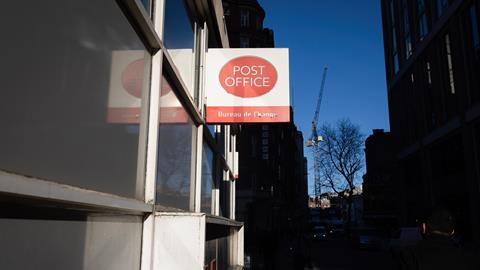Seven lawyers in the last two weeks have been summoned to give evidence before the Post Office Inquiry. And with the roll call set to grow even longer, the profession is bracing itself for more uncomfortable revelations that may have far-reaching repercussions for practice and ethics
Seven lawyers have been called to appear before the Post Office Inquiry over the last two weeks, putting the legal profession and the ethics it lives by under unprecedented public scrutiny.
Barristers and solicitors have faced the glare of live blogs, photographers capturing their ingress and written statements pored over by counsel.
For some, it was a harrowing experience. Former Post Office head of criminal law Jarnail Singh spent much of his six hours of evidence with his head in his hands and had to ask for a break as his eyes were hurting. Asked at one stage if an aspect of the scandal had been embarrassing, Singh responded: ‘It is embarrassing being here.’
Others were more polished. Brian Altman KC, the barrister recruited by Post Office to advise on its response to the growing Horizon crisis, twice told fellow silk Jason Beer ‘I know what you’re driving at’ as the inquiry counsel sought to draw out details.
But even Altman appeared perturbed by evidence showing Post Office was ‘very alive to the political dimension’ of bringing in someone who had previously been First Treasury counsel. It was suggested internally on Altman’s appointment in 2013 that he might ‘have the ear’ of the director of public prosecutions and attorney general.
Altman was later asked whether he had been ‘set up’ by the Post Office for his connections as much as for his legal ability. But while conceding that the Post Office ‘took comfort’ from his background as Treasury counsel, he said: ‘I never thought I was set up but it is a thought to wrestle with.’
Some of the evidence produced was stunning. Singh repeatedly denied knowing about Horizon bugs until 2013, but the inquiry was shown that he received an email in 2010 – days before the high-profile trial of a pregnant sub-postmistress – raising concerns about the system. The attachment with further details was saved to his computer and printed nine minutes later, but Singh insisted that he never read it. The trial went ahead without this disclosure and Seema Misra was jailed for more than a year.
Beer called Singh’s protestations a ‘big fat lie’.
'I saw my role as their barrister through Cartwright King who gave palatable and unpalatable advice. It is trite but [I stayed] in the hope I could do some good for them'
Simon Clarke, Cartwright King
Meanwhile, a note from Cartwright King (the firm instructed to work on Post Office prosecutions) solicitor Martin Smith revealed that Post Office head of security John Scott had advised that typed minutes of weekly meetings be scrapped and shredded. ‘I can recall being absolutely horrified and shocked by what I had heard,’ Smith told the inquiry.
Singh said it was ‘scary’ that this advice was issued and admitted he should have done more. He remembered going for a walk round the block and considered leaving the organisation as he was so upset about it.
Cartwright King barrister Simon Clarke did do more: he advised in writing that the duty to record and return material ‘cannot be abrogated’. He expected this advice to be escalated to the highest levels of Post Office. Scott would remain in post for another three years.
While such conduct could often be separated from the lawyers involved, their continuing to work for Post Office, knowing about shredding instructions and the lack of disclosure about Horizon bugs, was more difficult to explain.
Asked why he stayed on board, Clarke said: ‘Barristers don’t walk away from their clients when life gets difficult. I saw my role as their barrister through Cartwright King who gave palatable and unpalatable advice. It is trite but [I stayed] in the hope I could do some good for them.’
The protection of the Post Office name also appeared to have overlapped with professional obligations. Singh at one stage emailed a colleague saying that prosecutions should continue ‘to protect POL brand and reputation and in the interest of the business’.
Clarke wrote in 2013 that Post Office was concerned by the adverse publicity that disclosing a forensic accountant’s report would have generated and that ‘to permit this information to enter the public domain at such an early stage would have been to encourage extremely unhealthy and likely virulent speculation as to the content of any report’.
Regulators have said they are following the proceedings carefully and will make decisions about any possible disciplinary action once the inquiry has finished. There are many sub-postmasters who want action taken much sooner.
Meanwhile, the roll call of lawyers being summoned to give their version of events grows ever longer. For the rest of the profession, it makes fascinating – and uncomfortable – viewing.




































